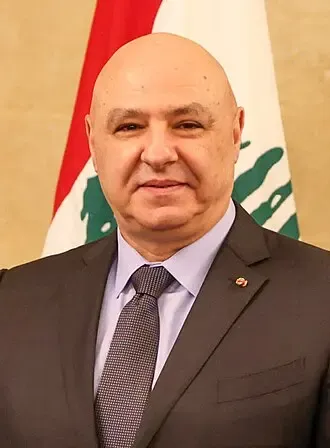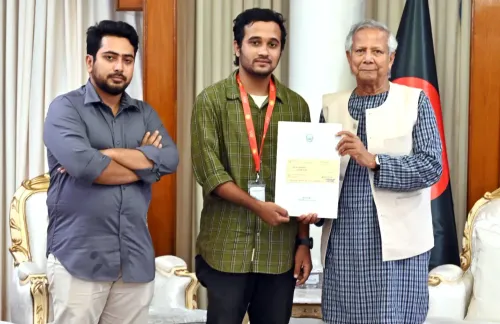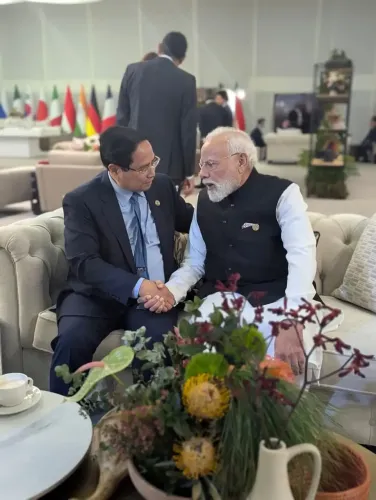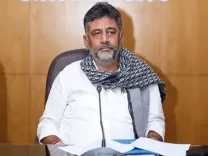Lebanese President Engages in Productive Discussions with US Envoy on Southern Lebanon and Syrian Border

Synopsis
Key Takeaways
- Joseph Aoun and Morgan Ortagus had productive talks.
- Discussions included the southern Lebanon situation.
- Focus on Syria border and military cooperation.
- Financial reforms and anti-corruption initiatives were addressed.
- Israeli violations and ceasefire issues were highlighted.
Beirut, April 6 (NationPress) Lebanese President Joseph Aoun engaged in "productive" discussions with US Deputy Envoy to the Middle East Morgan Ortagus, focusing on the circumstances in southern Lebanon and the border with Syria, as reported in an official statement.
As indicated by the presidential media office, the dialogue between Aoun and Ortagus also covered "the ongoing collaboration between the two parties, as well as financial and economic reforms and the government's efforts to combat corruption."
The statement highlighted that the discussions were prefaced by a private session, details of which were not disclosed.
During her visit to the Middle Eastern nation, Ortagus also conferred with Lebanese Prime Minister Nawaf Salam and Parliament Speaker Nabih Berri, according to reports from Xinhua.
The meeting with Salam was described as occurring in a "positive atmosphere," per a statement from the prime minister's office.
Conversations concentrated on "actions taken by the Lebanese army to enforce UN Resolution 1701, the security arrangements aimed at stopping hostilities, in cooperation with the military monitoring committee, and the completion of Israel's withdrawal from Lebanese territory," the statement noted.
Additionally, discussions included developments along the Lebanese-Syrian border and the nation’s financial and economic reform initiatives.
Ortagus commended the Lebanese government's financial and administrative reform strategies, along with its anti-corruption efforts.
In a separate meeting with Berri, Ortagus conducted "good and constructive" discussions regarding the on-ground situation, including "Israeli violations and assaults on Lebanon that continue to result in daily casualties, in violation of the ceasefire agreement and UN Resolution 1701."
Despite the US- and French-mediated ceasefire effective since November 27, 2024, Israeli forces have intermittently executed strikes within Lebanon, ranging from machine gun fire and artillery shelling to air raids, some of which have caused casualties, according to official Lebanese reports.
Although the agreement mandated the withdrawal of Israeli forces from Lebanese lands, Israel has retained a presence on five hilltops along the Lebanese border.
Tensions have escalated along the border with Syria following allegations from Syrian military authorities that Hezbollah was responsible for the abduction and killing of three Syrian soldiers in mid-March; however, Hezbollah has refuted these allegations.
Ortagus, who assumed her current position in January, arrived in Lebanon on Friday afternoon for her second visit after a prior trip in February.
As reported by Lebanon's Al Jadeed TV, she is anticipated to meet with various ministers, members of parliament, and political factions during her time in the country.









